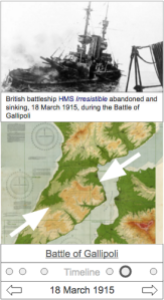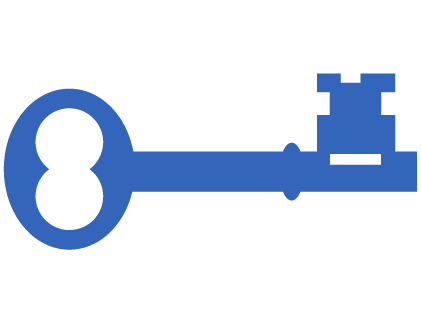
Photo by Heather Walls, freely licensed under CC0 1.0.
We are excited to announce the successful grantees from round two of the Wikimedia Foundation’s 2015 Individual Engagement Grants (IEG) program.
Individual Engagement Grants (IEG) provide funding to individuals and small teams to take on projects with potential for online impact and that advance the Wikimedia Foundation’s mission and strategic priorities. These projects can take on many forms, from building and improving online tools or social processes, to creating new types of partnerships with GLAM organizations or conducting actionable research about Wikimedia content and contributors.
The IEG committee typically scores two rounds of grant proposals a year according to specified selection criteria. 2015’s first round was dedicated to the Inspire Campaign, funding projects that sought to increase gender diversity on Wikimedia projects.
Our volunteer committee is made up of 18 Wikimedians who come from over 15 different wikis and collectively speak over 10 languages. Outside of our IEG committee work, members edit, review, and translate content; help govern local chapters; write software; organize off-wiki events; facilitate workshops; work as sysops and bureaucrats; verify copyright and licensing permissions; draft and discuss project policies; and recruit and welcome new users to Wikimedia projects. Many members also serve as advisors to new IEG grantees, helping to answer questions, connect them to relevant resources, and comment on monthly and midpoint reports.
In this latest round, a total of 29 eligible proposals were submitted for the committee’s review. We recommended 14 projects be funded in total, with 19 grantees to receive $83,113 overall. These projects are divided into four themes: Tools, Online Community Organizing, Offline Outreach & Partnership, and Research.
Tools: seven projects funded
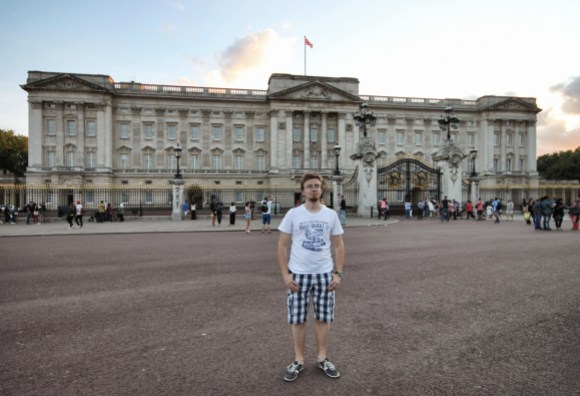
User:Yarl, creator of VicuñaUploader, will build a Batch Uploader to enable smaller GLAM institutions to more easily upload files to Wikimedia Commons. Photo by Yarl, freely licensed under CC BY-SA 4.0.
- Batch Uploader for small GLAM projects:
This project will create a simple batch content upload tool in order to address the needs of smaller GLAM institutions who may not have the necessary resources, including budget, time, or staff expertise, to operate the existing tools used by larger galleries, libraries, archives, and museums.
- Pan Scandinavian Machine Assisted Content Translation:
Using Apertium, an open-source machine translation platform, this project will create translation data for closely-related languages Swedish, Danish and Norwegian (Bokmål and Nynorsk) for use in Content Translation, an on-wiki translation tool.
- Wiki Needs Pictures:
By centralizing multiple sources of data including local templates, category labels, and Wikidata item properties in one application, this project will create a coordinated image request system with a mobile-friendly map-based interface that allows contributors to easily discover where there is demand from Wikimedia projects for specific images.
- Wikimaps Warper 2.0:
This project will focus on improvements to Map Warper, an open-source tool used for digitally aligning and overlaying historical maps, in order to make the software more accessible to Wikimedians and better integrated with Wikimedia projects. - StrepHit: Wikidata Statements Validation via Reference:
Using natural language processing, this project will take online content from a selection of (non-Wikimedia) websites and documents and then automatically convert the raw text into references to external sources thereby verifying the data provided in existing Wikidata statements.
- Semi-automatically generate Categories for Vietnamese Wikipedia:
By implementing natural language processing patterns, this project aims to create and apply English Wikipedia category structures to Vietnamese Wikipedia with the help of the community to evaluate and standardize the naming convention process. - Proofreading semi-automatically the Catalan Wikipedia with LanguageTool:
Using the open source program LanguageTool, this project will supervise the analysis of content, document common grammar errors, and develop bots and scripts to replicate their corresponding edits in Catalan Wikipedia.
Offline Outreach & Partnership: five projects funded
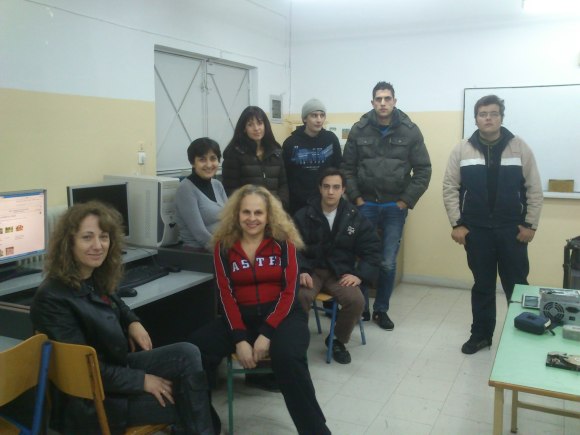
User:Saintfevrier, an experienced Wikipedia Education teacher in her secondary school classroom (shown here), will now pilot Wikitherapy, a new outreach and training project in institutional therapy settings.Photo by Saintfevrier, freely licensed under CC BY-SA 3.0.
- Wikitherapy:
An exploration of both the accessibility of Wikimedia editing and the transformative power of participation, this project will bring Wikimedia projects including Commons, Wiktionary, and Wikisource to institutional therapy settings by developing outreach and training materials that specifically meet the needs of therapy patients. - Increase Awareness of and Participation in Indic Language Wikipedias in Colorado:
Small group instruction and training in native language typing in multiple Indic scripts are the focus of this project which seeks to eliminate some of the barriers preventing the Indian diaspora community of Colorado Springs, CO from editing on Marathi, Gujarati, Hindi,Telugu, and Tamil Wikipedias.
- Motivational and educational video to introduce Wikimedia Video:
This project will create a modular series of instructional videos that can be updated and translated as needed, and that can be used to successfully onboard new editors en masse, for example, at edit-a-thons and other events where it is not possible to have the involvement of experienced Wikimedians. - Senior Citizens Write in Sanskrit Wikipedia:
This project will engage speakers of one of the oldest languages of the world to contribute to an untapped Wikipedia community by partnering with Sree Somnath Sanskrit University and promoting community activities to engage active editors and improve content quality. - Editing Maithili Wikipedia:
This project will deliver a series of in-person training sessions to students in Nepal’s Satpari District in order to create and nurture an active group of editors on Maithili-language Wikipedia.
Online Community Organizing: one project funded
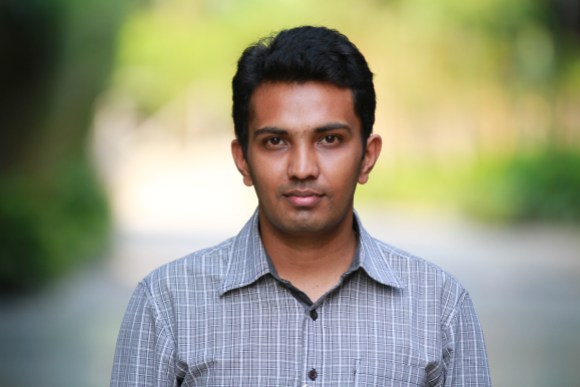
User:Omshivaprakash, an experienced online community organizer and self described FOSS Evangalist, will crowdsource the creation of Kannada Wikipedia articles on rare books of Kannada literature. Photo by Jasanpictures freely licensed under CC BY-SA 4.0.
- Growing Kannada language Wikimedia Projects with a digital library:
By engaging the online community of Pustaka Sanchaya, a crowdsourced database of Kannada literature and publications, this project will seek to recruit new editors who can create and expand content on Kannada Wikimedia projects using the references and citations available through Pustaka Sanchaya.
Research: one project funded
- Editor Behavior Analysis:
A user-friendly mechanism for generating dynamic and interactive data visualizations is the goal of this project which will enable researchers to better understand editing behaviour including type of articles edited by new editors and devices and tools used for editing.
Analysis
With so many new ideas put forward in this round, we’re seeing a few emerging trends.
We continue to see a strong showing from technical projects. As with last year, about half of all proposals were submitted under the “Tools” category. Because of recent changes to the IEG eligibility criteria in this category, we are funding–for the first time–software projects that require code review and integration.
There also appears to be a growing interest in making Wikimedia projects more accessible to a diverse global audience, whether it be through through developing intuitive, convenient, and mobile-friendly tools., or through creating customized instruction that targets individual language or learning needs.
Taking up this charge, we welcome discussion about how the IEG process itself can be made more accessible to future applicants who lack prior grant-writing experience or may require translation support when drafting their proposal. It’s always difficult for us to decline proposals, especially when there is obvious enthusiasm and vision behind them. Ultimately, however, even proposals that are promising and outline exciting ideas will not be funded if we are not convinced that a project can be executed effectively or sustained beyond the initial seed money provided by a grant.
Applicants who were not successful in this round of funding are warmly encouraged to refine, re-iterate on, and resubmit their proposals in upcoming rounds—we love to see ideas grow and change in response to feedback and as a result of the participatory grantmaking process whereby all members of the Wikimedia community (not just staff and committee members) can read over public grant proposals and leave comments and questions for applicants on talk pages. The next open call is scheduled for March 1–31, 2016.
We look forward to reviewing your suggestions and future submissions, but for now we say congratulations to the successful grantees and encourage you to follow their progress as they begin work in the coming weeks.
Helen Halbert, Individual Engagement Grants Committee Coordinator

Can you help us translate this article?
In order for this article to reach as many people as possible we would like your help. Can you translate this article to get the message out?
Start translation
